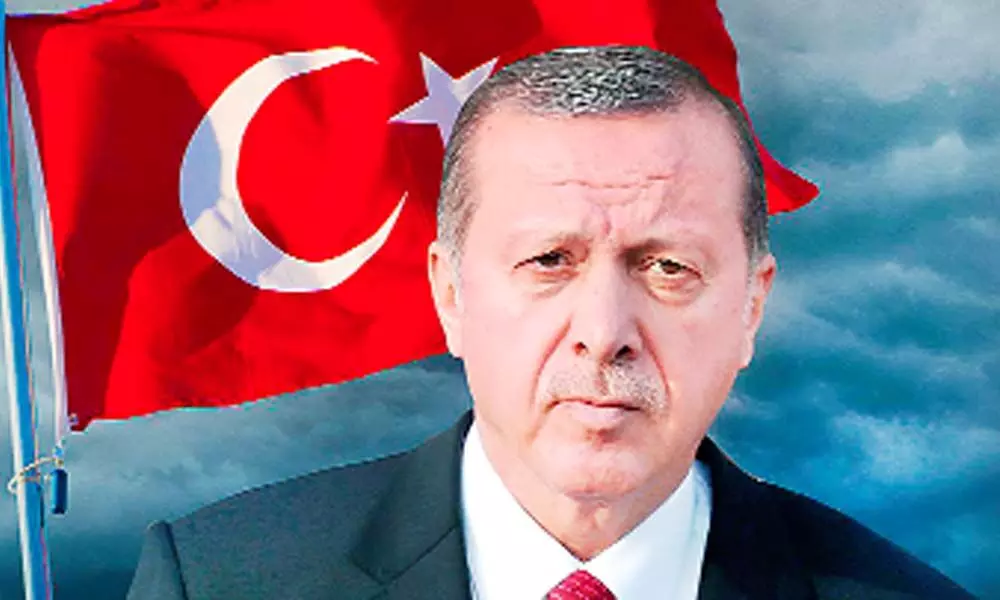Why Erdogan can't resist railing against interest rates
With inflation remaining stubbornly high, climbing to 14.6 per cent in December from 14 per cent in November, Agbal was expected to maintain tight credit in the New Year. Erdogan’s uncharacteristic silence on the topic allowed for some optimism that the governor would have a free hand
image for illustrative purpose

Despite a long career of criticising high rates, Turkey's president had been keeping mum about them. But he's picked up the torch again
Recep Tayyip Erdogan has climbed back on his favourite economic hobby horse, resuming his quixotic charge against high interest rates. This augurs ill for Turkey's economy, which has historically paid a large price for the president's phobia.
Speaking to a group of business leaders on Friday, Erdogan issued a thinly veiled criticism of his new central bank governor for raising borrowing costs late last year: "Whether they listen or not, I'll continue my struggle," he said. "There is one thing I believe in, we can't achieve anything with high interest rates."
The president has clung to this line throughout his political career. Erdogan maintains that high rates fuel inflation, even though conventional economic theory says the opposite is true. A succession of central bankers has had to bend monetary policy to his will, with predictable consequences: surging prices, a plunging lira and investor flight.
There was a moment last fall when it seemed that the new central-bank governor, Naci Agbal, might be able to return to monetary orthodoxy: He raised interest rates by the largest margin in over two years. In December, he announced another hike. (Cumulatively, he has raised the benchmark interest rate by 675 basis points to 17 per cent.) The lira strengthened on both occasions, rallying 14 per cent in the last two months of the year. Buoyed, investors returned to Turkish stocks and bonds.
With inflation remaining stubbornly high - climbing to 14.6 per cent in December from 14 per cent in November - Agbal was expected to maintain tight credit in the New Year. Erdogan's uncharacteristic silence on the topic allowed for some optimism that the governor would have a free hand. But the president's return to his ideé fixe puts Agbal in a position all too familiar to his predecessors. Investors are betting that, like them, he will do his master's bidding: The lira rally has faltered, and the bloom is off Turkish stocks.
The negative reaction was entirely predictable, so you have to wonder what compelled Erdogan to untie his tongue. After all, if the goal was simply to pressure Agbal, the president could have called the governor. By stating his druthers in public, Erdogan was plainly sending a political message.
The question is, to whom, exactly? The most common explanation is that Erdogan's revulsion of high rates is a product of his Muslim faith: The Quran condemns 'riba,' or usury. As a leader of an Islamic party, it behoves him - and appeals to his supporters - to rail against high rates. His diatribes are sometimes inflected with religious allusions: He has described interest rates as "the mother and father of all evil," and spoken of the "devil's triangle" of interest rates, inflation and exchange rates.
But it is just as likely that Erdogan is signalling to a specific subset of his political base: the so-called Anatolian Tigers. These are the religious-conservative entrepreneurs from cities in central and southern Turkey, the heartland of his Justice and Development Party, who were unleashed in the first years of Erdogan's rule.
Their businesses challenged the near total dominance of Istanbul-based conglomerates, thanks in no small part to government support - and access to cheap international funding. The party, in turn, has been able to bank on their support through thick and thin.
But the tigers have not been roaring recently. They are steeped in debt, and the weak lira makes payment of foreign loans especially burdensome. Never mind challenging the Istanbul elite, many are in dire need of money to simply stay afloat.
Only last week, the leader of the Union of Chambers and Commodity Exchanges of Turkey complained that high rates were "the biggest obstacle to production and investment," and called on banks to take a "more responsible" approach. This is a constituency Erdogan can't afford to ignore. Known by its Turkish acronym TOBB, the group has 1.3 million members, many of them tigers. Will their economic anxieties be eased by the president's pushing for lower rates? As businessmen, they must see that low rates will fuel inflation and weaken the currency - bad news even without the damage wrought on the economy by the coronavirus pandemic. If they cheer the president's quixotic pursuit, they'll be the ones left with the sorrowful countenances. (Bloomberg)

